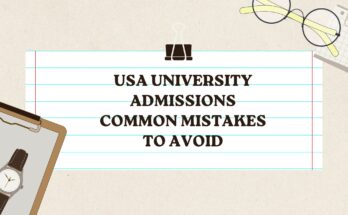Choosing a university in the US can be overwhelming. With countless institutions offering a variety of programs, navigating the landscape requires careful research. Accreditation emerges as a crucial factor in this process, ensuring you receive a quality education that holds value. This comprehensive guide delves into the world of USA university accreditation, equipping you to make informed decisions.
The Decentralized System:
Unlike many countries with a centralized education system, the US operates a decentralized model. Individual states hold significant authority over higher education institutions within their borders. Accreditation bridges this gap, offering a national benchmark for quality.
What is Accreditation?
Accreditation is a non-governmental process where a recognized agency evaluates a university against established standards. These standards cover various aspects, including:
- Academic Quality: The curriculum, faculty qualifications, and instructional methods are rigorously assessed.
- Financial Stability: The university’s financial health is reviewed to ensure it can deliver on its educational promises.
- Student Services: The availability and quality of student support services are evaluated.
- Governance and Administration: The university’s leadership structure and ethical practices undergo scrutiny.
Meeting these standards demonstrates the university’s commitment to providing a quality education and operating with integrity.
Who Grants Accreditation?
There are two primary types of accrediting agencies in the US:
- Regional Accrediting Agencies: Six regional accrediting bodies cover different geographical areas of the US. Each agency has its own set of standards and processes. The most prominent regional accreditors include the New England Association of Schools and Colleges (NEASC) and the Southern Association of Colleges and Schools Commission on Colleges (SACSCOC).
- National Accrediting Agencies: These agencies specialize in accrediting specific types of institutions, such as vocational schools or online programs. They operate alongside regional accreditation, not as a substitute.
Why is Accreditation Important?
Accreditation offers several benefits for students, institutions, and the overall education system:
- Student Benefits:
- Quality Education: Accreditation ensures a baseline level of academic quality, giving students confidence in the education they receive.
- Transferability of Credits: Credits earned at an accredited university are more likely to be accepted by other institutions, facilitating future academic pursuits.
- Federal Financial Aid: Accreditation is a requirement to qualify for federal student loans and grants, making college more affordable.
- Professional Licensure: Accreditation may be necessary to pursue certain professional licenses after graduation.
- Institutional Benefits:
- Reputation and Recognition: Accreditation enhances an institution’s reputation, attracting stronger students and faculty.
- Eligibility for Federal Funding: Accreditation allows universities to compete for federal grants that support research and educational programs.
- Accountability and Improvement: The accreditation process can identify areas needing improvement, encouraging universities to continuously enhance their programs.
- Systemic Benefits:
- Quality Assurance: Accreditation maintains a national standard for higher education, ensuring a baseline level of quality across institutions.
- Consumer Protection: Accreditation protects students from attending diploma mills or other institutions offering substandard education.
How to Find Out if a University is Accredited?
Most universities prominently display their accreditation status on their official websites. Additionally, you can verify the accreditation of a university through the websites of the regional or national accrediting agencies.
What if a University is Not Accredited?
There are a small number of universities in the US that operate without accreditation. While some may offer legitimate programs, attending such institutions carries significant risks:
- Unrecognized Degrees: A degree from a non-accredited university may not be recognized by employers or other educational institutions.
- Limited Financial Aid: Students at non-accredited universities are ineligible for most federal financial aid programs.
- Questionable Quality: The absence of accreditation raises concerns about the quality of education and faculty qualifications.
Conclusion:
Accreditation serves as a vital compass in navigating the US higher education landscape. By prioritizing accredited universities, you can be confident in your investment, ensuring you receive a recognized and valuable education that lays the foundation for your future success. Remember, accreditation is not the only factor, but it’s a crucial starting point in your college search. Consider factors like program offerings, campus culture, and location alongside accreditation to make an informed decision.



